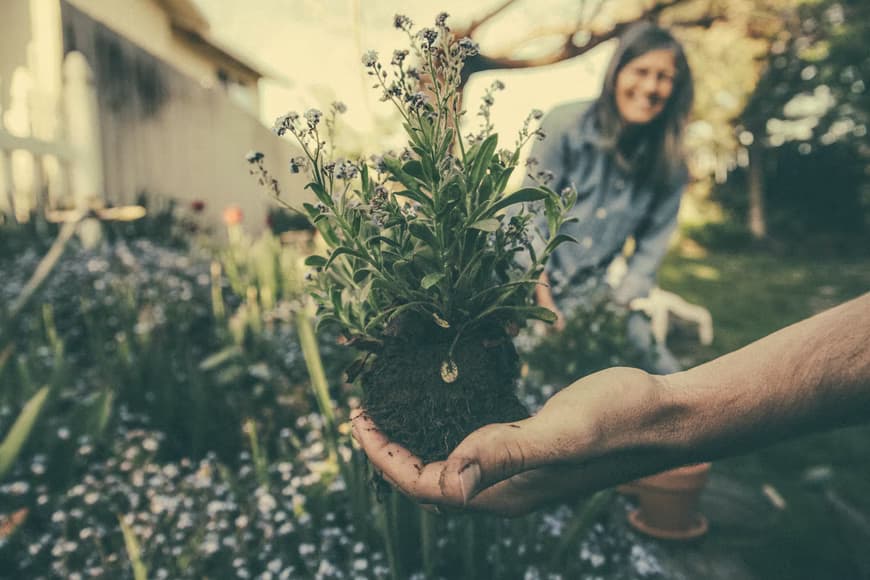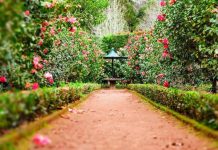Gardening is a wonderful way to get outside and enjoy the beauty of nature. It’s also an easy hobby to pick up, even if you don’t know much about plants. All you need is a little bit of space, the right tools to get going, and a little bit of patience. So to help you start growing your garden, we’ve put together a few helpful tips that will make it easy for you to create a beautiful plot of land that’s filled with your favorite flowers, vegetables, and fruits.
Table of Contents
Start With Your Lawn
The lawn is an often overlooked place to start your gardening adventure. It can be very easy, and lots of fun if you know the right tricks. To begin, make sure you are planting lawn seeds that are appropriate for your area.
If you’re not sure what kind of lawn will grow best in your region, talk to a local gardener or a home and garden expert to see what seeds they would recommend. And, don’t just scatter the seed on your lawn and walk away.
To ensure clarity of coverage, get a piece of equipment called a broadcast spreader. These can usually be rented for free or very cheap at most home improvement stores or nurseries.
Pay Attention To The Sun
Sunlight is a key ingredient for any thriving garden plot. If your plants don’t get enough sunlight, they will die and you’ll be back at square one. So before you plant anything, make sure that all of your plants get at least six hours’ worth of sun every day.
If your garden gets about six hours of sunlight, but some plants get far less than that, you’ll need to thin them out. Just pick the strongest and healthiest looking plant and uproot the other one so it doesn’t shade out the rest.
Remember The ‘One In, One Out’ Rule
It’s important to maintain a good balance of plants, flowers, vegetables, etc., in your garden. So when you are ready to plant something new, make sure that you either eliminate something else or move it elsewhere on the same property where it will receive more sunlight. This rule applies pretty much anywhere you have a garden whether it be at home or work, but keep in mind that it’s even more important for soil that doesn’t get direct sunlight since there is more room for shade-tolerant species.
Keep A Garden Journal
If you don’t want to end up with an overgrown jungle of dead plants and weeds then one thing that you’re going to need is a good old-fashioned garden journal. This can be as simple as a notebook or you can use an online application like Evernote if you prefer the electronic route. The idea behind keeping one is that it will help you avoid common beginner mistakes like forgetting when to water and fertilize and planting too many seeds in one area. Also, it’s a good way to keep track of what you planted and where, so that next year, if you decide to expand on a certain area, you can easily tell which plants are thriving and which ones aren’t.
Choose Garden Tools Carefully
The last thing you want in your garden is to be constantly breaking or dulling your tools because you’re using poor-quality ones. To avoid this, make sure that your toolbox has a nice sturdy pair of shears, a spade with a long handle, and a hoe for maintaining raised beds.
You can also use loppers for pruning plants that are too tall to reach by hand if you don’t have a ladder handy. The best place to get high-quality, durable gardening tools is directly from the place you purchase your seeds and seedlings. Many of the bigger places will have special departments that sell nothing but gardening supplies so they can ensure that each customer gets just what he or she needs and wants.
Don’t Forget To Lay Down The Mulch
Mulch is essentially dead plant matter such as bark chips or chopped-up leaves that act as a blanket on top of the soil. Over time it breaks down and adds nutrients back into the soil.
This provides many benefits including protection against weed growth because the roots of existing plants become entangled in it, which makes them harder to remove. Another benefit is that it acts as a natural water retention system because the soil becomes moist underneath the mulch and this way you don’t need to water as often.
Mix Up Your Plants
One mistake that new gardeners often make is planting too many of one type of plant or flower next to another. To avoid monotony in your garden, try mixing things up by choosing plants with different heights, colors, textures, blooming times, etc.
The more variety you have in your garden space, the better everything will look together. It’s best if each plant reflects at least two of these qualities so that they will look good together no matter what time of year it is.

Getting started on your gardening adventure is easier than you may think. As long as you have a sunny spot and a little bit of time a week to spend in the garden, you can grow almost anything. With these simple tips in mind, you can avoid common beginner mistakes and ensure that your garden is a success.




